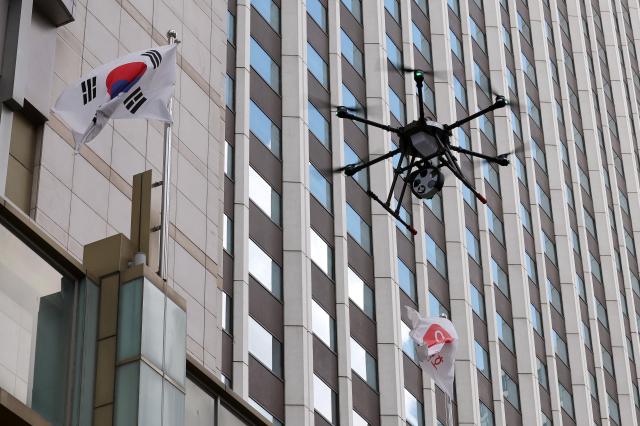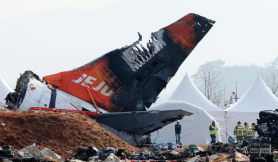
This came as the country moves to strengthen disaster-response capabilities following a series of deadly incidents.
The ministry said it reviewed 22 proposals from 119 companies before awarding the projects. One consortium will focus on building heavy-duty drones to fight wildfires, while another will develop artificial intelligence–driven systems to detect and disperse birds near airports.
The initiative comes after two stark reminders of the nation’s vulnerability: a plane crash last December that investigators suspect was caused by a bird strike, and massive wildfires in March that burned across wide swaths of the country.
Angelux, which will lead the firefighting drone consortium, is set to receive 11.5 billion won, or about $8.2 million, over the next three years to develop aircraft capable of carrying 200 kilograms of fire suppressant.
The drones, with a maximum takeoff weight of 450 kilograms, are designed to fly for up to three hours to battle blazes in areas deemed too dangerous for human firefighters. Angelux also plans to import larger foreign-made firefighting drones capable of handling 260-kilogram payloads.
The second consortium, led by NH Networks, will receive 5 billion won through 2026 to develop bird deterrence technology. Its drones will patrol within four kilometers of airports, using AI to analyze flight patterns and deploying swarm units to scatter flocks that pose a threat to aircraft safety.
Industry experts have long called for more advanced bird strike prevention measures, noting that major airports abroad already employ avian radars and laser systems.
“This project will provide new firefighting response capabilities,” Joo Jong-wan, deputy minister of civil aviation, said in a statement. “The successful commercialization of heavy-duty fire drones will help meet growing domestic demand for specialized aircraft.”
Copyright ⓒ Aju Press All rights reserved.


![[K-Tech] Low birthrate forces military pivot toward drones, automation](https://image.ajunews.com/content/image/2025/07/17/20250717150357642333_278_163.jpg)

